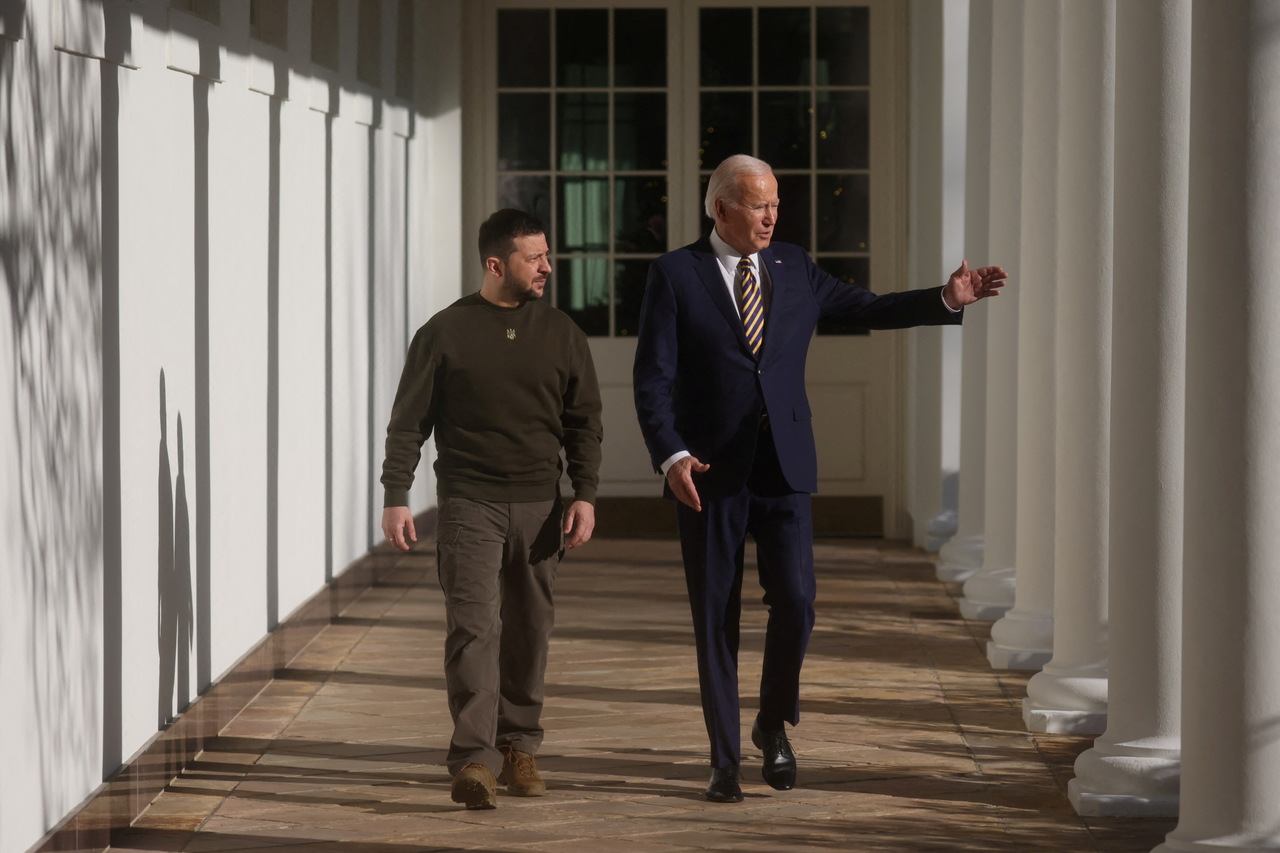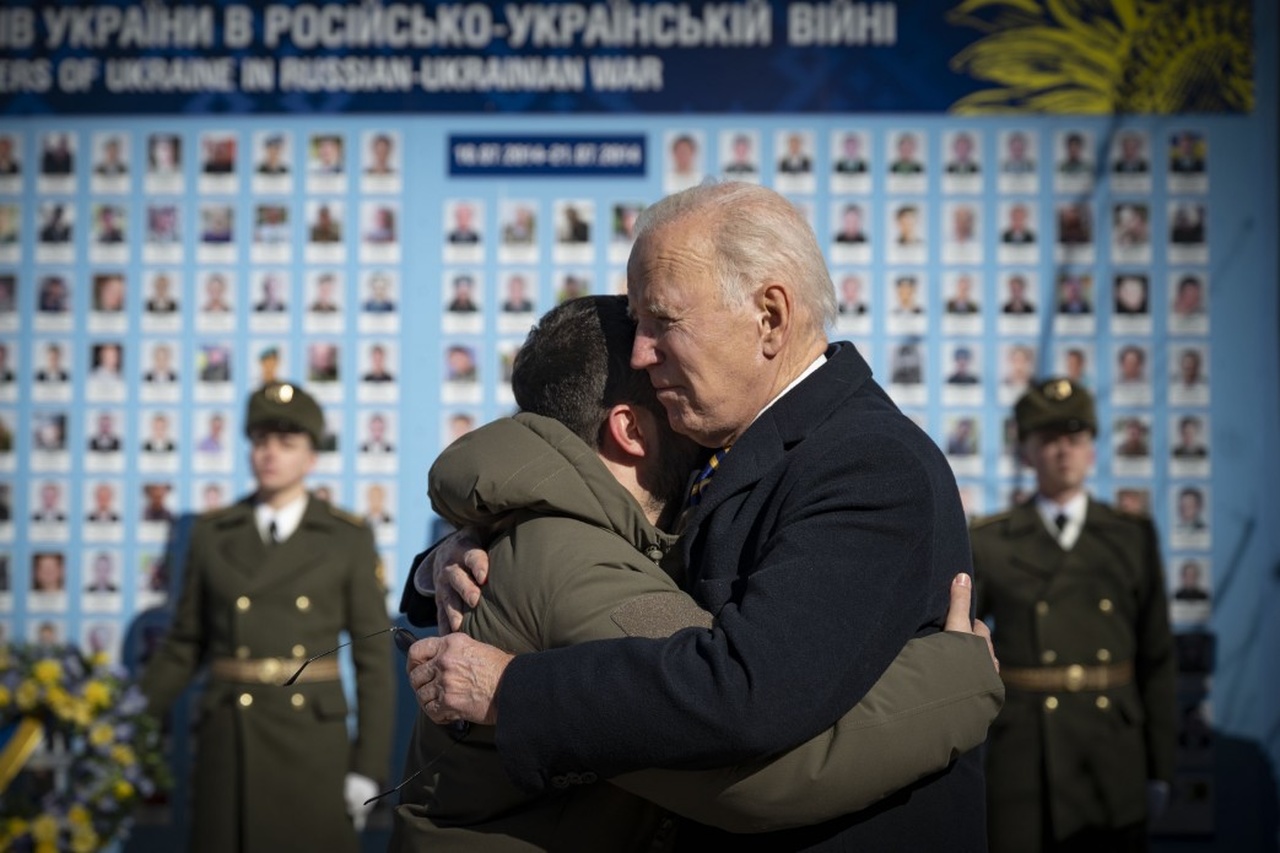Biden in Poland Calls for Unity on Ukraine
On 20-22 February, after returning from Kyiv, U.S. President Joe Biden visited Poland. The visit was aimed at marking the role of Poland and the countries of the region in the assistance provided to Ukraine. The president also emphasised the unity of the alliance of democratic states over the past year of Russian aggression and their readiness to continue to support Ukraine’s military victory.
 EVELYN HOCKSTEIN / Reuters / Forum
EVELYN HOCKSTEIN / Reuters / Forum
What did Biden do while in Poland?
After visiting Ukraine, Biden returned to Poland on 20 February. The official political programme of his visit to Warsaw began on 21 February with meetings with Polish President Andrzej Duda and Prime Minister Mateusz Morawiecki. Biden then headed the American delegation during plenary talks. In addition, he spoke with the Moldovan President Maia Sandu, who was also visiting Poland, and gave a public speech in the gardens of the Kubicki Arcades. Then, he met with representatives of the Polish political opposition, including the Marshal of the Senate Tomasz Grodzki, the Warsaw Mayor Rafał Trzaskowski, and the former prime minister and chairman of the Civic Platform party, Donald Tusk. On 22 February, Biden met with employees of the U.S. embassy in Warsaw (where some of the staff evacuated from the U.S. embassy in Kyiv are working) and attended an extraordinary summit of the Bucharest Nine (B9), which was also attended by NATO Secretary General Jens Stoltenberg.
What was the message of Biden’s Warsaw speech?
In his public speech in Warsaw, the U.S. president focused on the unity of the transatlantic community, including NATO, which has strengthened since the Russian full-scale invasion of Ukraine. He emphasised the advantage of democratic systems over the authoritarian rule of leaders like Putin and of other countries. This year’s address was a continuation of his speech delivered in Warsaw in March 2022. His expression of U.S. policy in strengthening democracy in Europe should be considered a reference to Moldova to draw attention to that state’s right to determine its path of accession to the European Union and a signal of support for the opposition and civil society in Belarus. Biden in this way confirmed that the traditional U.S. foreign policy goal of offering EU and NATO accession to any country that seeks it also applies to the states that emerged after the collapse of the USSR. The U.S. president’s declarations regarding efforts to maintain unity and further support for Ukraine in the war to oust Russia from Ukrainian territory gained further credibility and were strengthened by his visit the previous day to Kyiv and meeting with President Volodymyr Zelensky.
What was the significance of a B9 summit with Biden and Stoltenberg?
The B9 countries—Bulgaria, Czechia, Estonia, Hungary, Latvia, Lithuania, Poland, Romania, and Slovakia—met almost a year to the day after Russia’s full-scale invasion of Ukraine. The summit was used to discuss further directions of support for Ukraine, including arms transfers, and to formulate a common position by the Eastern Flank states on how to implement the new Alliance strategy, which will be the main topic of the NATO summit in Vilnius in July this year. In addition to reaffirming their commitments to allies, supporting Finland and Sweden joining NATO, and condemning Russia and its supporters for waging war, the B9 countries expressed their readiness to support and cooperate with NATO partners Bosnia and Herzegovina, Georgia, and Moldova. The presence of the U.S. president and the NATO secretary general at the summit was a signal that strengthening the Alliance’s deterrence and defence capabilities, as announced at the Madrid summit last year, may mean an increase or change in the nature of the presence of allied forces in at least some countries of the Eastern Flank.
What does Biden’s visit to Poland mean for Polish-American relations?
The U.S. president’s choice of Poland to visit to mark the anniversary of the Russian invasion underscored the country’s importance in supporting Ukraine. Both Poland and the U.S. call on Ukraine’s partners to maintain unity in providing military support and to increase the scale and scope of it (new types of weapons), in particular the supply of artillery ammunition, which is crucial for Ukraine. Presidents Duda and Biden also discussed the prospects of Poland’s and the U.S. involvement in the reconstruction of Ukraine. Despite the wartime context of Biden’s visit, the talks also concerned bilateral and allied defence, economic, and energy cooperation, including the development of nuclear energy in Poland. Assistance to Ukraine and the coordination of policy in this area between Poland and the U.S. have resulted in the highest level and intensity in bilateral relations in years.





